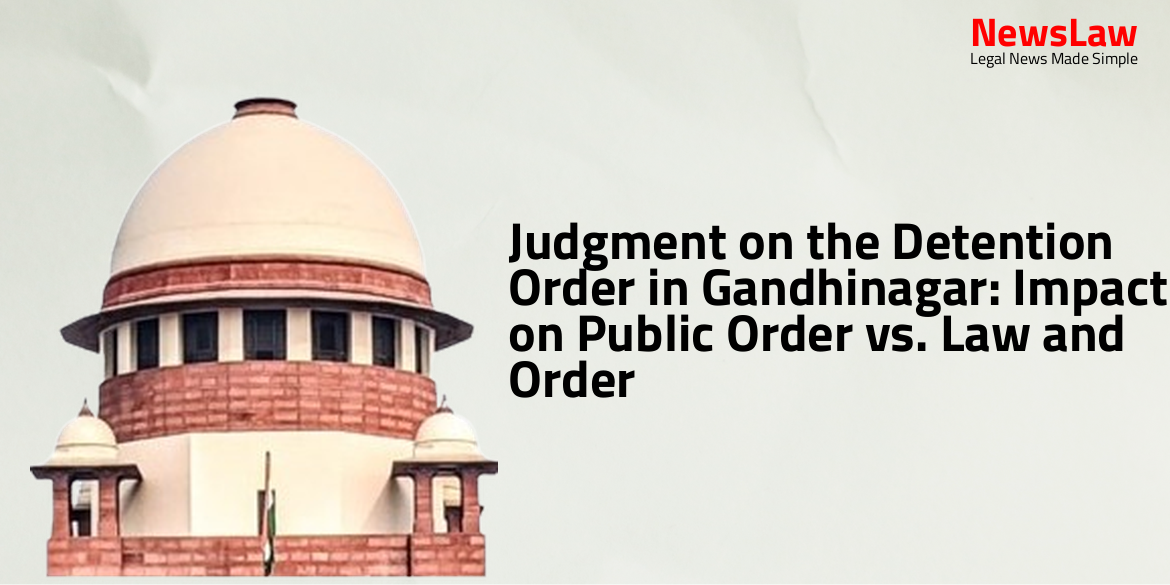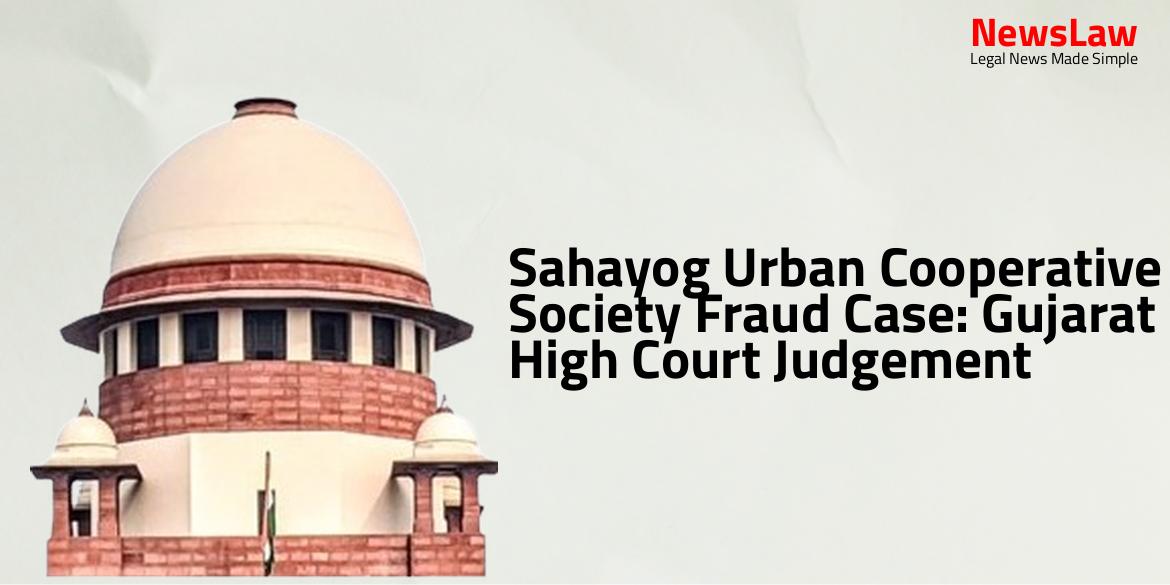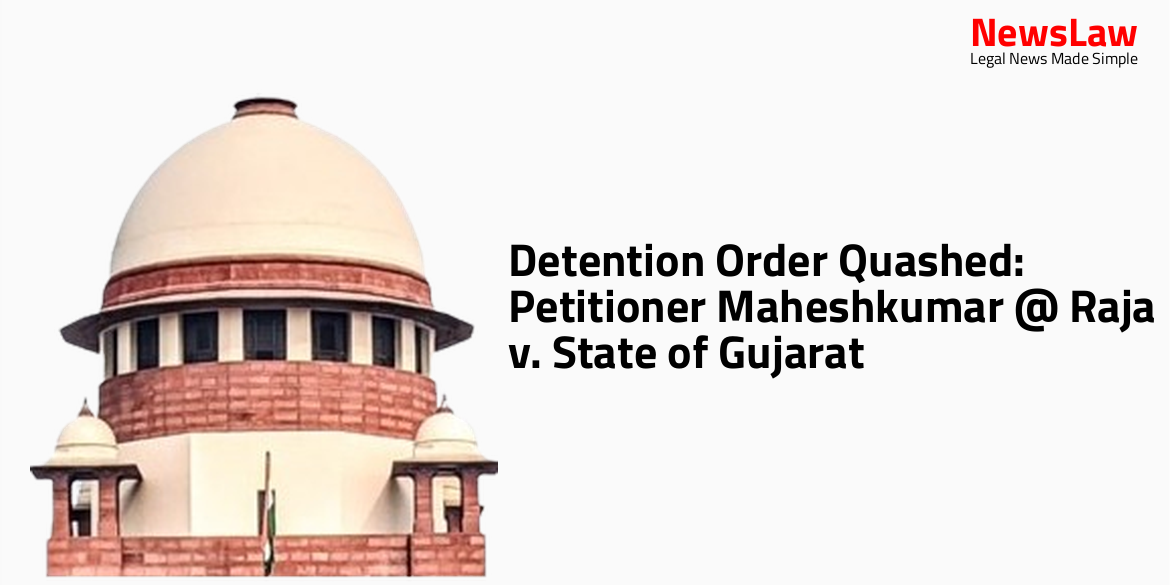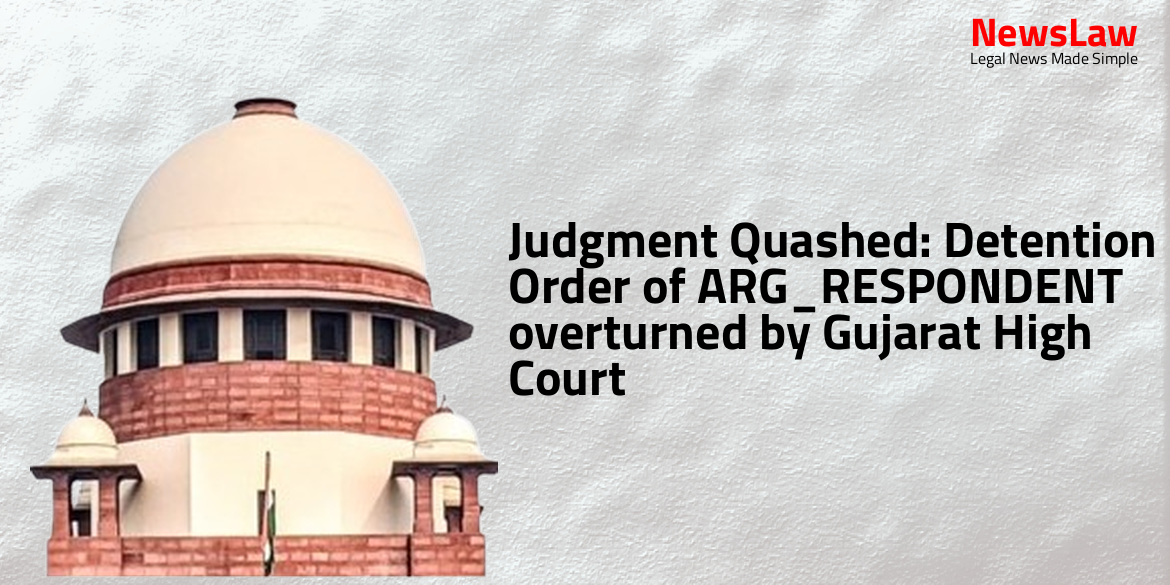In a significant case before the Gujarat High Court, the legality of the detention order in Gandhinagar was questioned, focusing on the impact on public order versus law and order. The judgment delves into whether the activities of the detenue are prejudicial to public order in the specified area. Stay informed on the key arguments presented and the court’s decision regarding the detention order.
Issue
- Whether the order of detention passed by the Detaining Authority under the Act of 1985 is sustainable in law is the main issue.
- The case involves a substantial question of law regarding the interpretation of the Constitution of India or any order made thereunder.
- The facts and submissions made by both parties have been considered in determining the legality of the detention order.
Arguments
- The advocate for the detenue argues that the grounds of detention do not relate to ‘public order’ but are about ‘law and order’.
- The registration of the offence is not seen to have an adverse impact on, or the potential to have an adverse impact on the maintenance of public order as per the Explanation to sub-section (4) of Section 3 of the Act of 1985.
- It is contended that the alleged offenses by the detenue do not affect the maintenance of public order, but only impact the maintenance of law and order.
- The advocate asserts that the detenue’s activities are prejudicial to law and order and not to public order.
- Detaining Authority passed the impugned order based on detenue’s antecedents and past activities
- Objective of the order is to prevent the detenue from acting in a manner prejudicial to public order in Gandhinagar area
- State Counsel argues that detenue is a habitual offender whose activities have adversely affected the society
Analysis
- The petitioner may be punished for alleged offences committed, but the acts do not affect the even tempo of community life.
- Being a bootlegger alone does not warrant preventive detention unless activities affect public order adversely.
- Offences alleged against the petitioner do not create insecurity, panic, or terror among the public.
- The material on record is insufficient to show that the detenue’s activities affect or likely to affect public order adversely.
- The subjective satisfaction of the detaining authority is deemed illegal and invalid as per law.
- The order dated 03.01.2024 is quashed, and the petitioner is to be set free if not required in any other case.
- Two criminal cases mentioned in the grounds of detention do not impact the maintenance of public order.
- The petitioner was granted bail in the mentioned offences and is currently in jail, based on those cases.
- The authority wrongly concluded that the detenue’s activities were prejudicial to public order based on the two prohibition cases.
- The said two offences have no relevance to the maintenance of public order.
- The detention order in this case was based on the registration of two prohibition offences under ordinary criminal law.
- The distinction between serious disorders affecting the community or public interest and minor breaches of peace of local significance is crucial.
- A mere disturbance of law and order does not necessarily constitute a basis for action under the Preventive Detention Act; it must affect public order to fall under the Act.
- Incidents of assault or quarrel between individuals, even if resulting in disorder, do not necessarily constitute public disorder.
- The Apex Court emphasized that not every act of assault or injury to specific persons leads to public disorder.
Case Title: PRAVINJI @ BHOLO VARSANGJI MANGAJI THAKOR THROUGH HIS BROTHER DIPAKJI VARSANGJI THAKOR Vs. STATE OF GUJARAT
Case Number: R/SCA/670/2024



